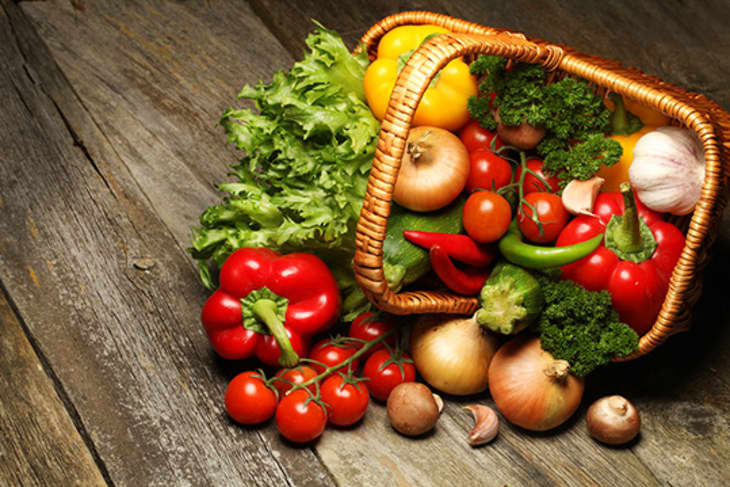Decide When to Buy Organic with the EWG’s 2013 Dirty Dozen List
If you want to maximize your grocery shopping budget, the Environmental Working Group’s annual Dirty Dozen and Clean Fifteen lists are essential tools for figuring out when it is worth spending more for organic produce, based on the pesticide residue levels found on 48 common fruits and vegetables. This year, cherry tomatoes and summer squash join the Dirty Dozen.
Like last year, the EWG is calling this list the Dirty Dozen Plus in order to call attention to collards, kale, summer squash and zucchini, vegetables that did not qualify for the Dirty Dozen, but are of special concern because samples tested positive for highly toxic organophosphate and organochlorine pesticides.
A few interesting facts from this year’s Dirty Dozen:
- Every sample of imported nectarines tested positive for pesticides, followed by apples; 99 percent of apple samples tested positive for at least one pesticide residue.
- The average potato had much higher total weight of pesticides than any other food crop.
- A single grape tested positive for 15 pesticides. The same was true for a single sweet bell pepper. Single samples of celery, cherry tomatoes and sweet bell peppers tested positive for 13 different pesticides apiece.
The Dirty Dozen (Always Buy Organic)
- Apples
- Celery
- Cherry tomatoes
- Cucumbers
- Grapes
- Hot peppers
- Nectarines (imported)
- Peaches
- Potatoes
- Spinach
- Strawberries
- Sweet bell peppers
+PLUS
- Collards and kale
- Summer squash and zucchini
The Clean Fifteen (OK to Buy Conventional)
- Asparagus
- Avocado
- Cabbage
- Cantaloupe
- Corn
- Eggplant
- Grapefruit
- Kiwi
- Mangos
- Mushrooms
- Onions
- Papayas
- Pineapples
- Sweet peas (frozen)
- Sweet potatoes
Get the Dirty Dozen & Clean Fifteen
(Image: Aleksandra Zaitseva/Shutterstock)
